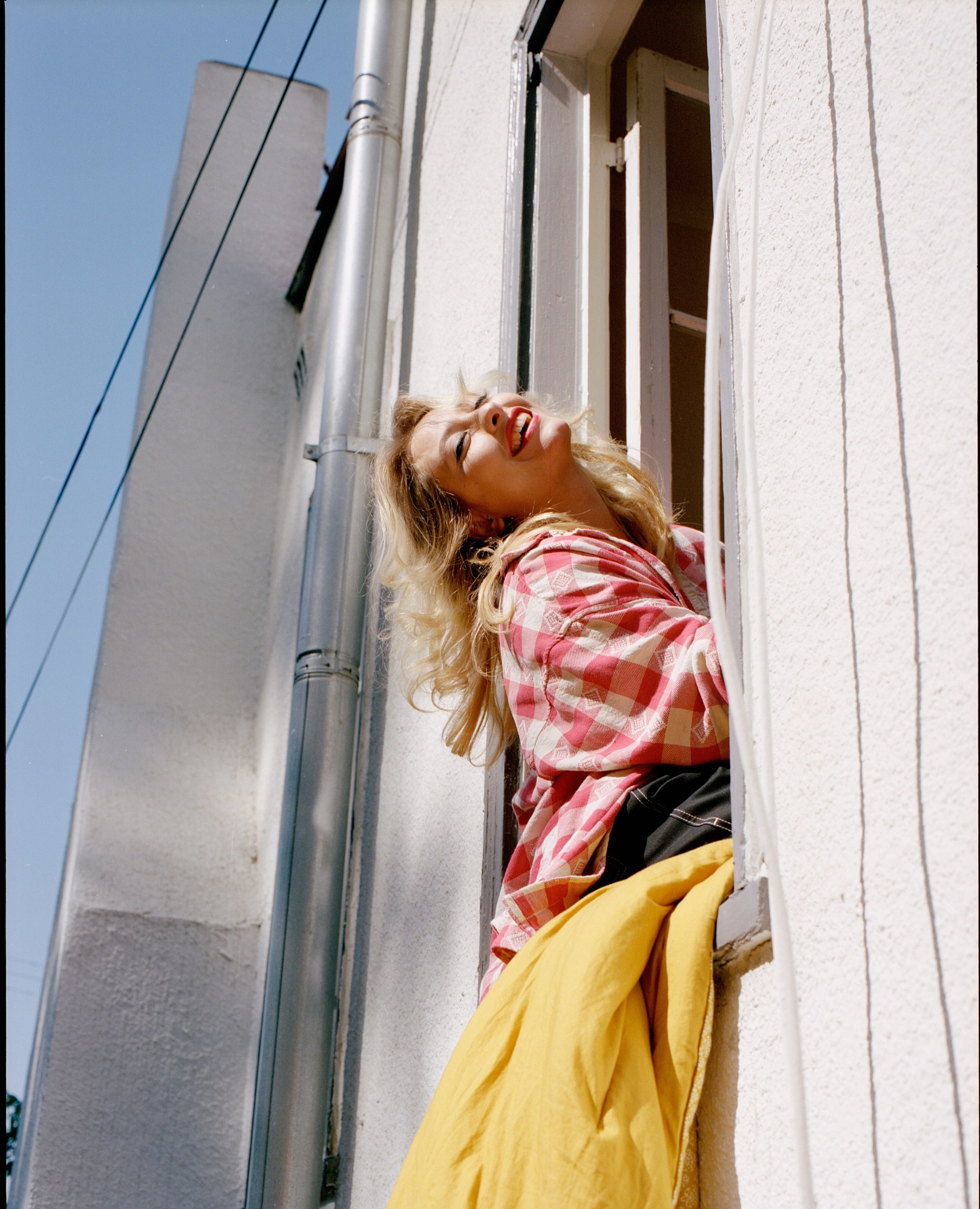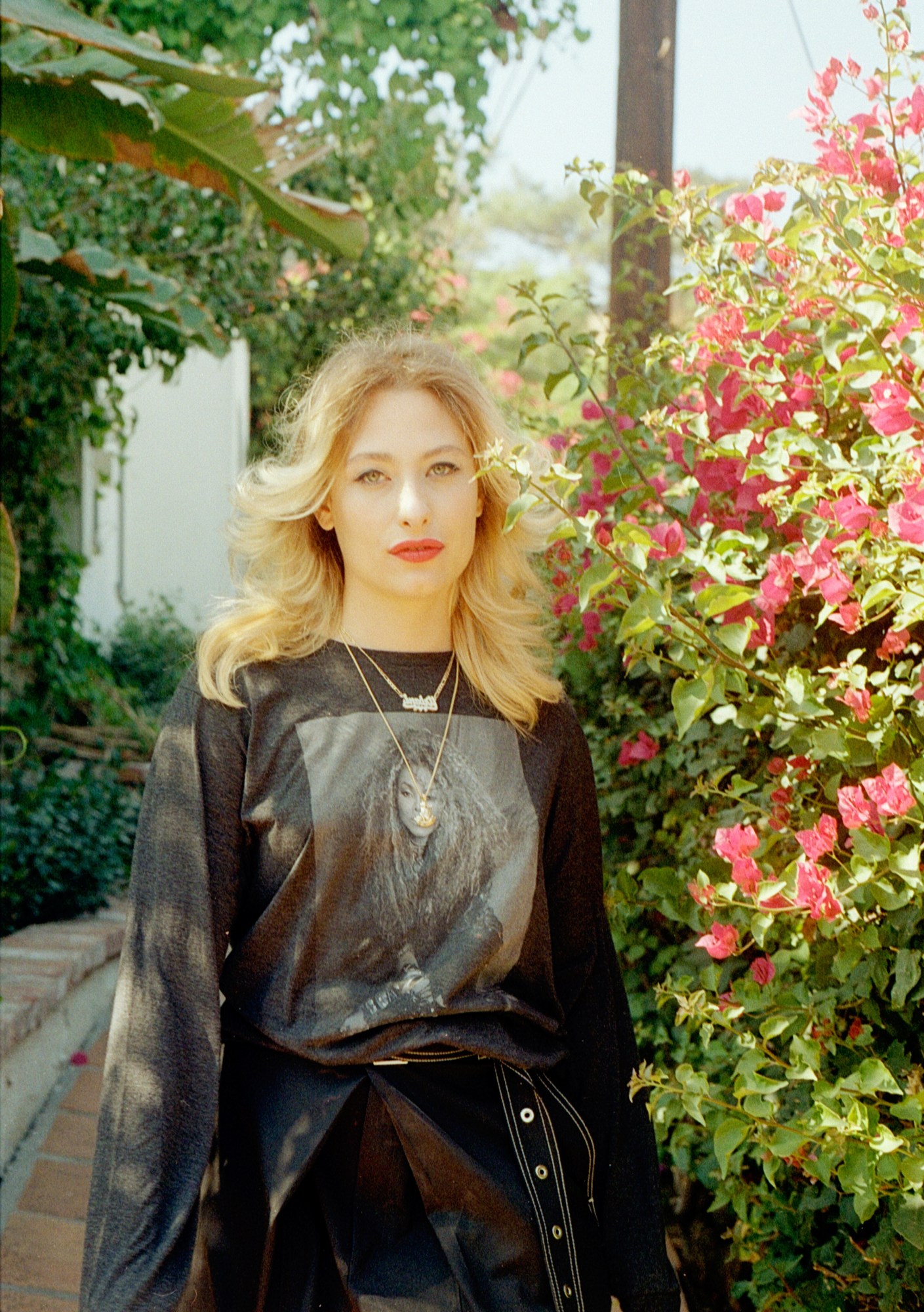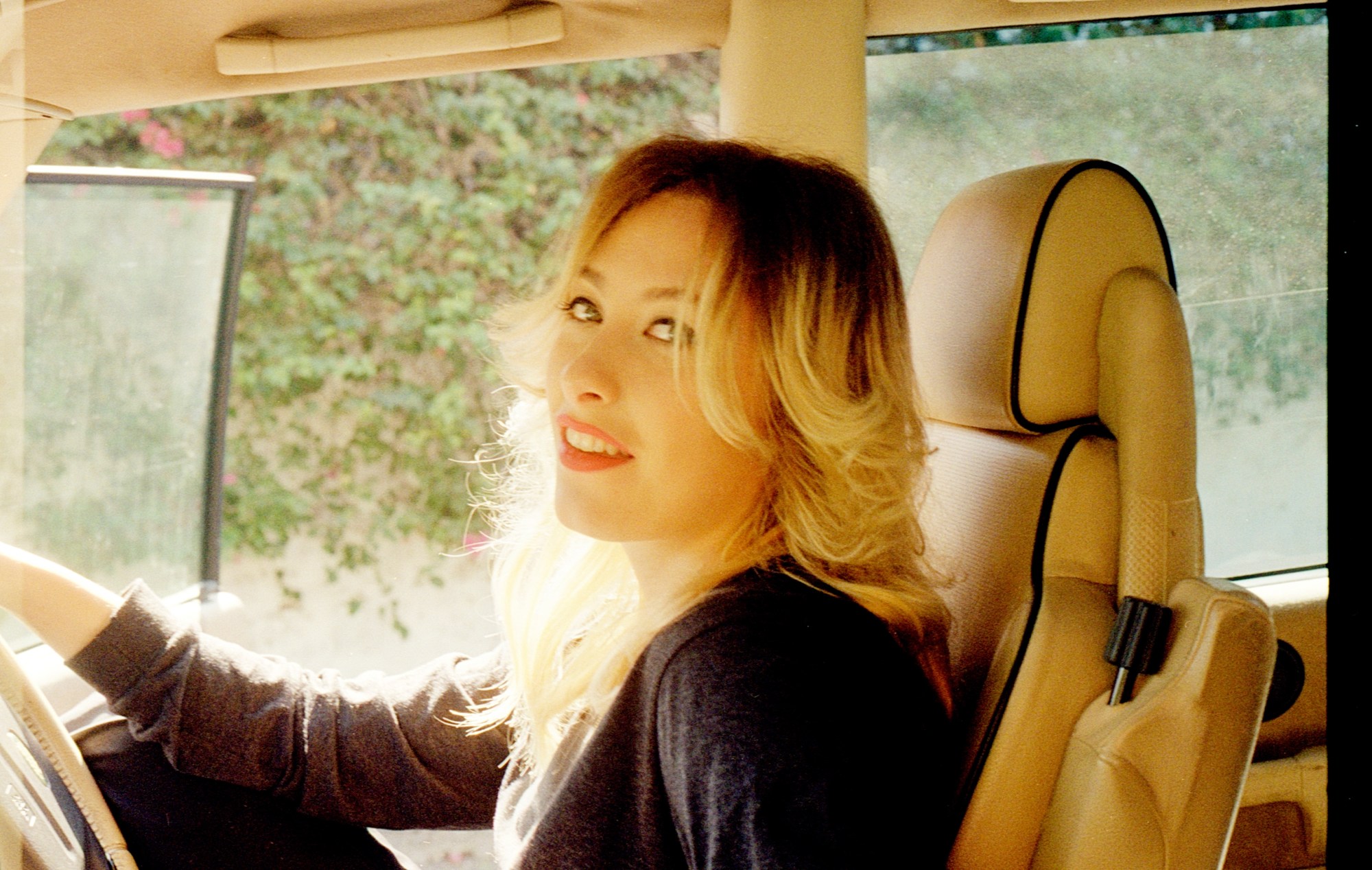It sounds cheesier than Samantha Urbani probably would like it to, but the fact is she was destined to be a musician. It’s a fate written into even her name. Loosely translated from Hebrew and Italian, “Samantha Urbani” means “Listener of the City,” and more than any one sound, any genre, any affiliation, it’s that directive that unites her music: melodies that hum like the streets.
Urbani, who grew up in Connecticut, but learned to drive so she could abscond to New York on the weekends, is best-known for her front-and-center position in the Brooklyn-based band Friends and for her rich collaborations with her former partner Dev Hynes. But since January 2016, she’s experimented on her own, leaving New York for Los Angeles and spending as many months on her new EP, Policies of Power.

Photography Michael Bailey Gates
Released in August 2017, the EP is addictive — shot through with a delicious fizziness and backed up by vocals that make each track feel fresh and current. (“Hint & Implications” is a unique triumph, with the kind of beat that somehow feels like it could power a marathon or a bender.) The music draws on the best of 80s and 90s pop, from glorious synth sounds to drums to the queens, Sade and Janet Jackson. And the mood — the tiniest bit wistful, but at the same time declarative, emotional, persuasive — mirrors how Urbani has processed what’s happened to her and in the world around her over the past 24 months.
“Our lives have been fucked up, and everybody knows it,” Urbani says, her affect not so much bitter as frank. “We’re all pretty burdened and we want to have some kind of optimism, but the situation is pretty bleak, and everyone is just dealing with that.” It can be, she allows, a solace to make music under such dire circumstances, but she isn’t interested in work that capitalizes on the moment. “It’s been a terrible year, and I don’t blame anyone who needs to take their time or wants to keep their emotions to themselves,” she says. “I think it can be really healing, as artists, to share and connect, but if you try to force it, you’re just damaging the process.”

Over and over, Urbani comes back to the process in our conversation. Of course, the EP thrills her, even as she swears she’ll never be someone “who goes into a room with a bunch of people and is like, ‘Listen to this thing I just made!'” But it’s the process — how and why she made it — that she’s proudest of.
“The band that I started,” she says, referring to Friends, “It was pretty pure in that none of us had some kind of capitalistic agenda. No one was trying to gain money or fame or any of the stuff that can taint music. It was this really cool, compassionate space that we created for us to grow and figure stuff out. But as soon as a bunch of people were involved who had dollar signs in their eyes, it wasn’t fun for me. It all started to seem really strategic.” It was a hard realization for Urbani, who is still determined to be an “open, unguarded person,” but it’s made her smarter. A decade in music, and she’s “more mindful about the kind of energies” she wants to accommodate.

And that’s doesn’t include room for the “capitalist, corporate machine” that orchestrates so much mainstream popular music. “I believe in freedom to create,” Urbani says, adamant. “I’m very much an absurdist when it comes to art. The truth is nothing makes sense; you can’t make everybody happy; and if someone creates in that mode, let them do that, see what happens.” But the contrived, the mass-produced — that repels her.
It’s not quite a surprise, then, that Urbani hasn’t rolled out Policies of Power on a traditional schedule. For the first time ever, she’s released music with no imminent plans to tour it. “With the EP, I just wanted to create, get it done, see how it felt, and have it give me perspective on how to move forward,” she says. “I realized that’s really hard!” But the break has given her resolve; she’s determined to surround herself with only the best people, people who will help her become the musician that she wants to be. “It’s not building a career-machine,” she says. “It’s building a community and a family to do this.”
It’s a barely hidden secret, beating beneath the chords and the music: For all her stoic realism, Urbani still believes in a transformative art. “We’re in this beautiful time for music to be imbued with politics and consciousness,” she says. And while we’re all entitled to “a moment to reel in the panic and the trauma,” we have to quite literally compose ourselves. We have work to do.
